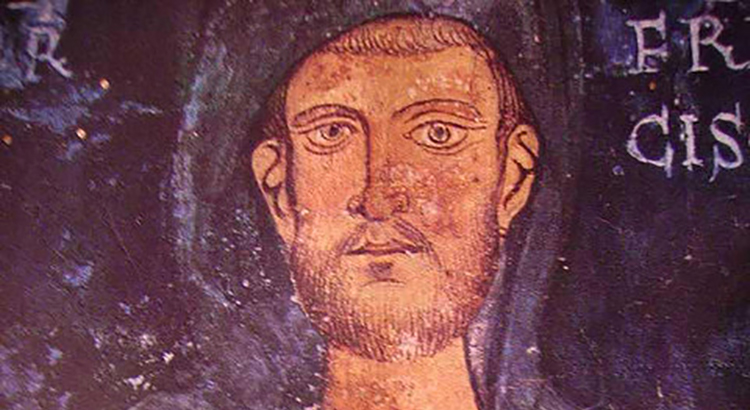Prayer for peace
The prayer for peace is held in the Basilica of Santa Maria in Trastevere.
Prayer for the unity of Christians.
Reading of the Word of God
Alleluia, alleluia, alleluia
This is the Gospel of the poor,
liberation for the imprisoned,
sight for the blind,
freedom for the oppressed.
Alleluia, alleluia, alleluia
Hebrews 5,1-10
Every high priest is taken from among human beings and is appointed to act on their behalf in relationships with God, to offer gifts and sacrifices for sins; he can sympathise with those who are ignorant or who have gone astray, because he too is subject to the limitations of weakness. That is why he has to make sin offerings for himself as well as for the people. No one takes this honour on himself; it needs a call from God, as in Aaron's case. And so it was not Christ who gave himself the glory of becoming high priest, but the one who said to him: You are my Son, today I have fathered you, and in another text: You are a priest for ever, of the order of Melchizedek. During his life on earth, he offered up prayer and entreaty, with loud cries and with tears, to the one who had the power to save him from death, and, winning a hearing by his reverence, he learnt obedience, Son though he was, through his sufferings; when he had been perfected, he became for all who obey him the source of eternal salvation and was acclaimed by God with the title of high priest of the order of Melchizedek.
Alleluia, alleluia, alleluia
The Son of Man came to serve,
whoever wants to be great
should become servant of all.
Alleluia, alleluia, alleluia
These words of the letter to the Hebrews help us reflect more on Jesus as "high priest." In the tradition of the temple, the high priest was the only one who, once a year, could enter "the Holy of Holy," the most internal part of the temple in Jerusalem. This happened during the feast of the Yom Kippur, the day of Atonement, which was totally dedicated to prayer and penance in order to receive God' forgiveness. The letter presents Jesus as the new high priest. Because of the suffering Jesus suffered and his acknowledged obedience to God, he became the cause of salvation for all, not only for the people of Israel. There is no longer any need to offer sacrifices of atonement for the forgiveness of sins in the temple in Jerusalem: Jesus Himself, because of the suffering He suffered, is the one who now obtains forgiveness and salvation for all peoples. The author interprets the earthly life of Jesus as a priestly offering made of "prayers and supplications, with loud cries and tears, to the one who was able to save him from death, and he was heard because of his reverent submission." He, the son of God, is declared a priest according to the order of Melchizedek, the priest mentioned in chapter 14 of the book of Genesis and later in Psalm 110, quoted in the letter. Melchizedek, king of Salem (Jerusalem), had gone towards Abraham offering him bread and wine and had blessed him: "Blessed be Abraham by God Most High, creator of heaven and earth.". He was not a priest of the God of Israel, but he had recognised in Abraham the presence of God Most High. Through Jesus, each one of us, whatever people we belong to, can take part in the sacrifice of salvation that Jesus offered on the cross. Indeed, each of us, through our own testimony, can help others, even those who are far from God, to recognise God Most High, the Father of Jesus.
